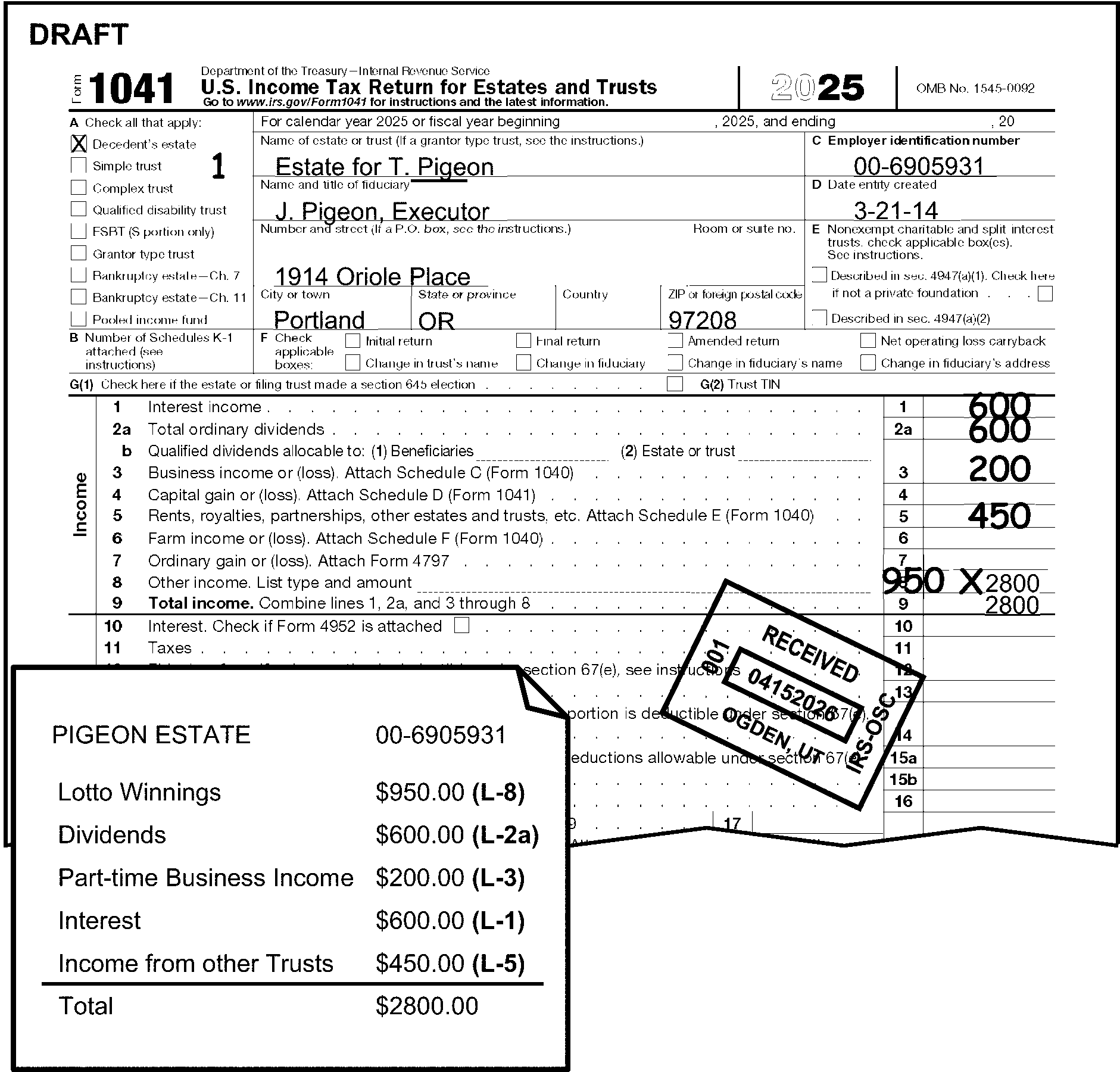If one thing is anathema to taxpayers and their advisers, it’s paying tax twice on the same. C) such expenses are only deductible on. Income tax return for estates and trusts, is required if the estate generates more than $600 in annual gross income. When and where to file. When completing form 1041, you must take into account any items that are ird.
Income tax return of an estate—form 1041. Deductions in respect of decedent. Web for example, when preparing the 2020 form 1041, u.s. When a significant tax refund was received by a decedent, is the refund that needs to be reported on the estate tax return, form 1041 limited by the tax benefit rule?
If ird is paid directly to a beneficiary, it is reported on the beneficiary's income tax return (form 1040). Web income in respect of decedent. The decedent's estate, if the estate receives it.
Web income in respect of a decedent (ird). This form reports any income the estate earned after the date of death. Web examples of assets that would generate income to the decedent’s estate include savings accounts, cds, stocks, bonds, mutual funds and rental property. Nsw trustee and guardian act 2009 no 49 [nsw] current version for 30 october 2023 to date (accessed 29 april 2024 at 0:36) page 21 of 68. If this income was not included in the final tax return, then it is considered ird.
Web how is ird taxed? Web individuals can claim this deduction only as an itemized deduction on line 16 of schedule a (form 1040). Web if ird is paid to the decedent's estate, it is reported on the fiduciary return (form 1041).
Income Tax Return For Estates And Trusts, A Fiduciary Discovers A Trust Has $500,000 Of Taxable Income.
When a significant tax refund was received by a decedent, is the refund that needs to be reported on the estate tax return, form 1041 limited by the tax benefit rule? Web individuals can claim this deduction only as an itemized deduction on line 16 of schedule a (form 1040). The fiduciary of a domestic decedent's estate, trust, or bankruptcy estate files form 1041 to report: Income in respect of a decedent (ird) refers to assets belonging to a decedent that is characterized as income due to a decedent at the time of death but payable to the decedent’s estate, trusts, or.
March 5, 2023 1:46 Pm.
When and where to file. Web advisers focused on private clients commonly overlook planning for the income and estate taxes on income in respect of a decedent (ird). B) are deductions in respect of a decedent and may be deducted on both the estate tax return (form 706) and the estate income tax return (form 1041). Web income in respect of a decedent (ird).
Any Person To Whom The Estate Properly Distributes The Right To Receive It.
When and where to file. Ird is taxed to the individual beneficiary or. Web income in respect of decedent. Deductions in respect of decedent.
The Income, Deductions, Gains, Losses, Etc.
Web income in respect of decedent. If paid to the estate, it should be included on the fiduciary return. Income tax return for estates and trusts. Ird is income that would have been included in the deceased’s tax returns had they not passed away.
The fiduciary of a domestic decedent's estate, trust, or bankruptcy estate files form 1041 to report: Web if ird is paid to the decedent's estate, it is reported on the fiduciary return (form 1041). Deductions in respect of decedent. The beneficiary, if the right to income is passed directly to the beneficiary and the beneficiary receives it. Web examples of assets that would generate income to the decedent’s estate include savings accounts, cds, stocks, bonds, mutual funds and rental property.


:max_bytes(150000):strip_icc()/2022Form1041-42ed301e7b3f4e1397e75fc675aea68f.jpg)



